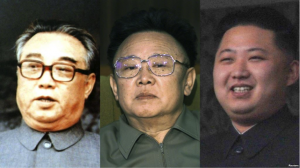 The Workers’ Party of Korea (WPK) has announced that its Seventh Congress will be held in the first week of May 2016.
The Workers’ Party of Korea (WPK) has announced that its Seventh Congress will be held in the first week of May 2016.
The WPK has its roots in the anti-Japanese armed struggle for national liberation and the Inaugural Congress of the Central Organising Committee of the Communist Party of North Korea, its predecessor organisation, was held in October 1945.
The Party put forward the anti-imperialist, anti-feudal democratic revolution as its immediate task. It then successfully led democratic reforms, distributing land to the tillers, nationalising major industries and enacting a labour law and a law on equality of the sexes. It also launched mass movements to raise the ideological level of the working masses and encourage them in the building of a new society.
The Second Congress of the Workers’ Party of North Korea, held in March 1948, set itself the task of rousing the whole people to carry out the tasks of the first period of transition to socialism. When the US unleashed the Korean war against the DPRK (1950-1953), aiming to strangle the newly-born country in its cradle, the Party mobilised the army and people in the struggle to win victory in the war, thus defeating the US-led imperialist forces from 16 countries and defending the sovereignty and dignity of the country. And by carrying out the post-war reconstruction on the ruins of war in a matter of three years, it demonstrated once again the might of the country to the US imperialists, who had claimed that Korea would never be rebuilt within one hundred years.
The Third Congress of the Workers’ Party of Korea, which was held in April 1956, presented the plan for completing the laying of the foundations of socialism. By organising and mobilising the people, the Party completed agricultural cooperativisation along with the socialist transformation of private and capitalist trade and commerce in a short period of time, thus firmly establishing the socialist system in the country and developing it into a socialist industrial and agricultural state, with the firm foundations of an independent national economy.
At the Fourth Congress of the WPK, held in September 1961, the Party reviewed the successes achieved in the socialist revolution and construction and advanced an ambitious programme of the First Seven-Year Plan for reaching the goal of socialism. Amid the tense situation at home and abroad created by the Cuban Missile Crisis and the Gulf of Tonkin incident in Vietnam, it achieved great successes in transforming the country into a socialist industrial state while building up its national defence simultaneously with the economy.
At the Fifth Congress of the WPK, held in November 1970, it set out the Six-Year Plan, another ambitious programme, and the tasks for hastening the final victory of socialism and achieving the nationwide victory of the Korean revolution. The country vigorously promoted the line of the three revolutions – ideological, technological and cultural – and made great progress in the struggle to build socialism in an all-round way.
The Sixth Congress of the WPK, held in October 1980, presented the tasks for implementing the line of three revolutions, together with ten long-term objectives of socialist economic construction that should have been attained in the 1980s. Had these long-term objectives been realised, the DPRK would have joined the ranks of nations leading the world in economic development.
However, the Party faced an unexpected situation. From the end of the 1980s, socialism collapsed in the Soviet Union and the countries of Eastern Europe and the US-led imperialist forces took this opportunity to further increase their pressure on the DPRK.
In this arduous period, the Party, upholding the banner of Songun (army-first politics), stood firm and successfully defended socialism. As a result, the cause of building a thriving socialist country is now advancing successfully in the DPRK, despite the moves of the US and its followers to isolate and suffocate it by means of sanctions and military pressures.
The successive launch of indigenous satellites has demonstrated the strength and scientific prowess of the country and the H-bomb test conducted earlier this year provided a strong guarantee for defending the sovereignty of the country in the face of the continuing nuclear threat from the US.
According to the Korean comrades, ” the upcoming Seventh Congress of the WPK will review in a comprehensive way the brilliant successes it achieved in the revolution and construction under the leadership of Kim Il Sung, eternal President of the DPRK, and Kim Jong Il, eternal General Secretary of the WPK, in the previous period and unfold a bright blueprint for hastening final victory of the Korean revolution under the leadership of Kim Jong Un, First Secretary of the WPK .”
The Communist Party of Great Britain (Marxist-Leninist) (CPGB-ML) has sent a message of greetings to the Seventh Congress of the WPK, stating:
” Our Party, faithful to Marxism-Leninism and proletarian internationalism, and conscious of our responsibilities in a heartland of imperialism, will always support the heroic Korean people, who are standing on the frontline of the struggle against US-led imperialism and will always extend solidarity to you in the building of socialism, dynamically advancing together in a common struggle against common enemies and for common ideals.”
LALKAR fully associates itself with the content of the CPGB-ML’s message.
Comments are closed, but trackbacks and pingbacks are open.